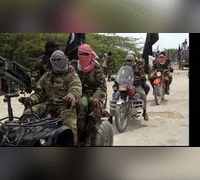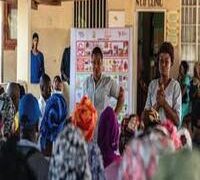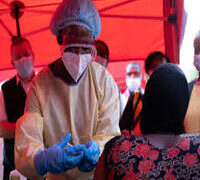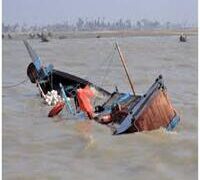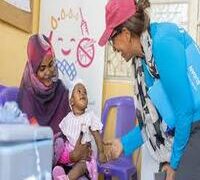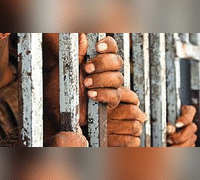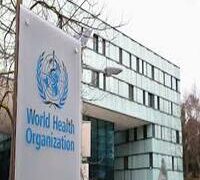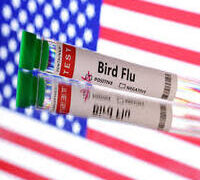Abia State, Southeast Nigeria, has emerged as the most prepared state for health emergencies in the country.
In the 2025 SBM Health Preparedness Index report, Abia scored 26.85, the highest in the country.
According to the report, the state’s performance is driven by the highest health spending per person (N22,926), a strong 14.8 per cent budget allocation to health, and one of the country’s highest Human Development Index scores at 0.674.
The SBM Health Preparedness Index evaluates the readiness of Nigeria’s 36 states to effectively respond to health emergencies and deliver comprehensive healthcare services. The report is published annually at the end of each year.
Data sources for the report include the National Bureau of Statistics, World Health Organisation, The Lancet, Nigeria Demographic and Health Survey, BudgIT, The Cable, the Faculty of Medical Sciences of Radboud University, and Global Data Lab.
The HPI is calculated using the latest available data, examining state-level budgetary commitments, human resource capacity, and key health outcomes. Against a backdrop of ongoing security concerns and economic pressures, the capacity of individual states to prepare for and respond to health crises has never been more critical.
According to the report, Ogun State ranks second with 23.52 points, maintaining its position from 2024, while Lagos came third with 23.08, a slight drop from the previous year despite allocating over ₦221 billion to health, the largest nominal amount in the country. Both states demonstrated consistency in health investment and infrastructure.
Kwara followed in fourth place with 22.50 points, while Edo took fifth with 22.28. Rivers rounded out the top six with 21.74, reflecting moderate improvement in budgetary commitment and healthcare delivery.
Kaduna State, ranked seventh (20.42), remains the best-performing northern state, buoyed by a remarkable 16.1 per cent of its total budget allocated to healthcare, the highest in the country.
Enugu (19.90), another consistent performer, followed closely, supported by one of the country’s best doctor-to-patient ratios, with fewer than 3,200 patients per doctor.
States such as Ondo (19.77), Kogi (19.58), Akwa Ibom (19.33), Bayelsa (18.86), Cross River (18.61), and Niger (18.44) occupy the middle tier. Others in this band include Osun (18.38), Anambra (18.37), Delta (18.35), Ekiti (18.32), Oyo (18.24), and Imo (18.20). Many of these states are in southern Nigeria, reflecting the persistent southern lead in healthcare preparedness.
“Abia State takes the top position in the HPI for the first time, scoring 26.85. Its performance is buoyed by the highest health spending per person (₦22,926, $15.65), a healthy percentage (14.8%) of its budget allocated to health, and one of the country’s highest HDI (0.674),” the report noted.
“Ogun (23.52) retains its second position from last year, and Lagos (23.08), which dropped to third, remains in the top three. Both Lagos and Ogun demonstrate consistency in their health investments.
“Notably, Osun State has made a significant leap into the top five, ranking 4th with a score of 22.26, a marked improvement from its previous position, driven by favourable metrics across several indicators.”
Borno (17.79) and Nasarawa (17.44) showed modest gains over 2024 but still face major challenges such as insecurity and limited medical personnel. In Borno, one doctor attends to over 36,000 residents, far above the WHO recommendation.
The lower end of the ranking remains dominated by northern states. Benue (16.87), Plateau (16.08), Yobe (16.04), Taraba (15.41), and Kano (15.24) all scored below 17. Gombe (14.76), Bauchi (14.13), Adamawa (14.07), Sokoto (13.71), Jigawa (13.51), and Kebbi (13.31) occupy the bottom decile.
At the very bottom are Ebonyi (12.85), the only southern state among the lowest five, and Katsina (12.54), which ranks last. Ebonyi’s low ranking was attributed to poor health funding and a severe doctor shortage, with one doctor for every 21,202 residents.
The report revealed that no state scored above 30 per cent, showing that even the best-performing states fall short of adequate health preparedness. Despite marginal improvements in a few states, SBM Intelligence warns that Nigeria’s overall health preparedness remains critically low, leaving millions vulnerable to future health emergencies.
PUNCH NEWS.



